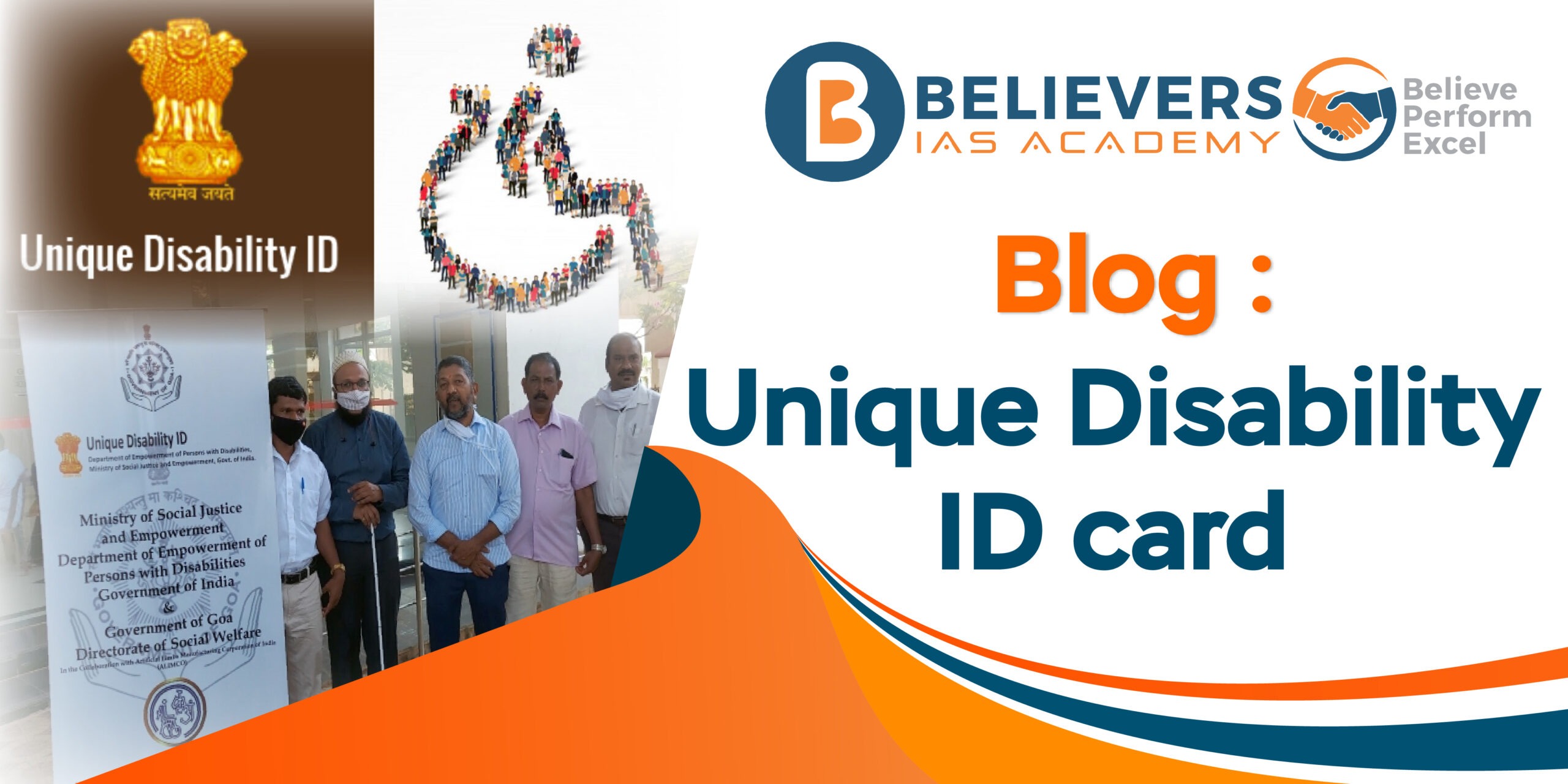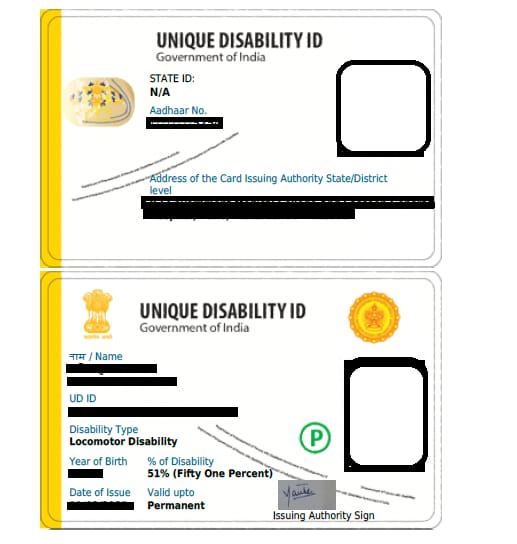Unique Disability ID (UDID) cards
What are Unique Disability ID (UDID) cards?
In India, individuals with disabilities (PwDs) can obtain a government-issued identification card called the Unique Disability ID (UDID) card. It’s a component of the initiative called “Unique ID for Persons with Disabilities,” which intends to establish a national database for PwDs and issue them with individual identification cards.
Which disabilities are covered under Unique Disability ID?
- Blindness: People who are completely sighted, have visual acuity less than 6/60 or 20/200 (Snellen) in their better eye with corrective lenses, or have a field of vision restriction that extends beyond a 20-degree angle fall into this category.
- Cerebral Palsy: People who have cerebral palsy, which is a collection of non-progressive diseases caused by brain damage or traumas that occur during the prenatal, perinatal, or neonatal period of development, are characterized by poor motor control and posture.
- Locomotor Disability: A person with a locomotor disability has a condition that significantly restricts their ability to move their limbs, such as cerebral palsy in any form.
- Leprosy-cured: Individuals who have had leprosy removed from their bodies but may still have some lingering symptoms, such as loss of feeling in their hands or feet, physical deformity, paresis (partial paralysis), or extreme physical deformity, as well as advanced age that prevents them from engaging in any gainful employment.
- Mental Retardation: Individuals who have mental retardation, which is a condition in which the mind’s growth is halted or incomplete and is marked by subnormal intelligence.
- Mental illness: Individuals with mental illnesses, except those who are mentally retarded. This topic includes a variety of mental health issues.
- Hearing Impairment: People who have hearing impairment, which is defined as a loss of at least 60 dB in the better ear in the range of frequencies used in conversation.
What are the objectives of UDID?
The goal of this project is to make it possible for people with disabilities to acquire the new UDID card or Disability Certificate to benefit from policies and programs offered by the government through its many Ministries and their Departments. This card will be usable throughout India. The UDID portal must be created to give users access to the following web platforms:
- new UDID application
- renewal of an existing certificate or card when its validity expires
- If a card or certificate is lost
The UDID Portal will also include details on the various programs and perks, how to apply for a disability certificate or UDID card, success stories, suggestions and feedback, manuals, etc. in addition to the aforementioned material.
What is the process for enrolling into UDID?
There is a provision for offline applications, which can be converted to digital form by the appropriate agencies, in addition to the ability to submit registration applications online via a centralized web application. Hospitals or medical boards determine the percentage of the population with disabilities. The UDID program offers a management information system (MIS) reporting architecture and enables online renewal and updating of information. According to new Acts or announcements, the number of recognized disabilities may rise, maybe reaching 19 or more different classifications.
What is the significance of the UDID Card?
- Identification and Verification: The UDID card is used to officially identify and verify the cardholder’s disability status. It offers an accepted and standardized form of verification of disability, which is necessary to get government services and benefits.
- Access to Government Benefits: Giving PwDs access to various government programs and benefits offered by various ministries and departments is one of the main goals of the UDID card. These advantages could consist of financial support, healthcare services, educational possibilities, and more. The card simplifies the procedure for requesting and getting these benefits.
- Efficiency and Transparency: The UDID card encourages efficiency and transparency in the provision of government benefits to PwDs. It ensures that the benefits reach the intended beneficiaries and aids in the prevention of fraud. This openness is essential for effective government.
- Consistency: The UDID programme makes sure that PwDs are identified and given benefits consistently at all levels of government administration, from the local to the national. This consistency assures fair service access while reducing confusion.
- Monitoring Progress: At several levels of government administration, the UDID card makes it easier to monitor the material and financial progress of recipients. This tracking enables data-driven decision-making and guarantees that services and benefits are successfully provided to people who require them.
- Reduced Documentation: To access different services, PwDs frequently need to carry multiple paperwork. Since the UDID card has all the information required to prove a person’s handicap and eligibility for government benefits, carrying various documents is no longer essential.
- Online Application and Renewal: Online registration and submission of registration application forms for disability certificates and UDID cards are both supported under the UDID scheme. Additionally, it allows for online renewal and information updates, simplifying the process for PwDs and cutting down on paperwork.
- Interoperability: The UDID initiative seeks to ensure the interoperability of the government’s programs and benefits for people with disabilities. This makes it simpler for people to obtain services because the card may be used with many government offices and initiatives.
What are the schemes available for Disabled Persons?
- Accessible India Campaign: Aimed at creating an accessible environment for PwDs.
- Assistance to Disabled Persons for Purchase/Fitting of Aids and Appliances (ADIP).
- Deen Dayal Disabled Rehabilitation Scheme.
- National Fellowship for Students with Disabilities.
- International Day of Persons with Disabilities.
- National Mental Health Programme.



